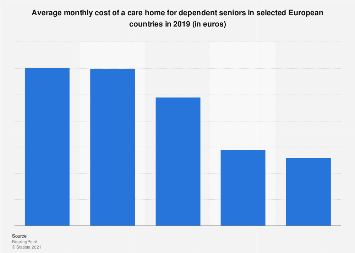
You have come to the right page if you are considering changing your career from teaching. There are a number of alternative careers for educators that do not require classroom teaching. They can include jobs that pay well and offer benefits. You can also find jobs that use your existing skills in new and innovative ways.
The Best Jobs for Former Teachers
If you're passionate about working with children, becoming a tutor could be a great career choice. As a tutor, you'll work one-on-one with students to overcome academic challenges and help them develop their personal learning styles. You'll get to know the students' individual strengths and weakness so that you can offer them personalized instruction.
You can also pursue a career as a test developer, which involves designing and revising standardized tests and other educational assessments. This is a high-paying career option for former teachers who have developed good time management, organizational, and people skills in their classrooms.
Business Administration
If you enjoy problem-solving and a desire to make a difference, consider joining a business team. You can start out by applying for a position as a HR specialist. This will allow you to use your interpersonal and communications skills to assess and screen candidates and recruit for staff.

You could also pursue a career in event planning, where you can use your organizational skills to help plan events. This career offers flexible schedules and the chance to work for a mission-driven company.
Project Manager
If your natural leadership abilities are strong, you might want to pursue a career as a project manager. You will need to have a high degree of determination and organization in order for this role to become a reality.
Paralegal
This career is a great fit if you enjoy researching and analyzing complex legal issues. You will need to use your analytical, research and writing skills for a job which requires an undergraduate or associate degree in paralegal education.
Librarian
If a quiet, peaceful setting is more your thing, you might want to explore a career as a librarian. You'll be responsible for selecting, acquiring and cataloging library materials, and you'll work alone much of the time.
Museum Tour Guide
If your favorite class in school was art or sciences, you may want to guide tours at an arts or science museum. A bachelor's degree is required to be a guide in a museum. The qualifications vary depending on the type of museum.

Sales
Consider a career as an agent if you are looking to put your teaching abilities to work in a high-pressured setting. This highly-respected career requires communication, marketing and negotiation abilities.
Human Resource Specialist
You'll apply your knowledge of educational issues to help businesses manage their human resources. That includes helping them hire and retain staff. You'll be assessing candidates, conducting interviews, and helping employees to feel valued. This job requires excellent interpersonal and communications skills. But you must have a degree from a human resources or business management program.
FAQ
What are the main types of health insurance?
There are three main types for health insurance:
-
Private health insurance covers most costs associated with your medical care. Private companies often offer this type of insurance. You only pay monthly premiums.
-
The majority of the costs of medical care are covered by public health insurance, but there are limitations and restrictions to coverage. Public insurance covers only routine visits to doctors and hospitals, as well as labs, Xray facilities, dental offices and prescription drugs. It also does not cover certain preventive procedures.
-
For future medical expenses, medical savings accounts are used. The funds are held in a special account that is separate from any other kind of account. Most employers offer MSA plans. These accounts are non-taxable and accrue interest at rates similar that bank savings accounts.
What will be the impact on the health care industry if there will be no Medicare?
Medicare is an entitlement program that offers financial assistance to low-income families and individuals who can't afford their premiums. This program provides financial assistance to more than 40 million Americans.
Millions of Americans will lose coverage if the program is not implemented. Some private insurers may stop offering policies to pre-existing patients.
What does "health promotion” mean?
Health promotion is helping people live longer, stay well, and be healthier. This promotes health rather than treating existing diseases.
It also includes:
-
Eating right
-
You need to get enough sleep
-
exercising regularly
-
Being active and fit
-
Smoking is not permitted
-
managing stress
-
Keeping up with vaccinations
-
Avoid alcohol abuse
-
Regular screenings and checkups
-
learning how to cope with chronic illnesses.
How can I get my free health insurance?
If you are eligible, you can apply for free insurance. If you are eligible, you might be eligible to Medicaid, Medicare or CHIP, Children's Health Insurance Program(CHIP), Tricare benefits, VA benefits and Federal Employee Health Benefitss (FEHB), military benefits, Indian Health Service benefits (IHS), or another program.
What is a health system in public health?
The term Health System describes all activities related to providing medical services for a particular population. This includes financing, regulation, education, training and information systems.
What are the three types of healthcare systems?
The first system is a traditional system where patients have little choice over who they see for treatment. They visit hospital A if they are in need of an operation. But otherwise, it is best to not bother as there is little else.
The second system is a fee per service system. Doctors earn money depending on the number of tests, operations, or drugs they perform. They won't do extra work if they don't get enough money. You will pay twice as much.
The third system is called a capitation. It pays doctors based upon how much they actually spend on healthcare, rather than the number of procedures they perform. This encourages doctors use of less expensive treatments, such as talking therapies, instead of surgical procedures.
What are the three main objectives of a healthcare program?
The three most important goals of a healthcare system should be to provide care for patients at an affordable cost, improve health outcomes, and reduce costs.
These goals have been combined into a framework called Triple Aim. It is based off research by Institute of Healthcare Improvement. IHI published this in 2008.
This framework aims to ensure that we all focus on the same goals and can achieve each goal while not compromising other goals.
This is because they're not competing against each other. They support each other.
In other words, people who have less access to healthcare are more likely to die as a result of being unable or unwilling to pay. This helps to lower the overall cost of healthcare.
It is also important to improve the quality and cost of care. It also improves outcomes.
Statistics
- Price Increases, Aging Push Sector To 20 Percent Of Economy". (en.wikipedia.org)
- About 14 percent of Americans have chronic kidney disease. (rasmussen.edu)
- Over the first twenty-five years of this transformation, government contributions to healthcare expenditures have dropped from 36% to 15%, with the burden of managing this decrease falling largely on patients. (en.wikipedia.org)
- Consuming over 10 percent of [3] (en.wikipedia.org)
- For instance, Chinese hospital charges tend toward 50% for drugs, another major percentage for equipment, and a small percentage for healthcare professional fees. (en.wikipedia.org)
External Links
How To
What is the Healthcare Industry Value Chain
The healthcare industry value chains include all the activities involved with providing healthcare services. This includes both the business processes in hospitals and clinics, as well the supply chains that connect them with other providers like doctors, pharmacists, insurers, manufacturers, wholesalers, distributors, etc. The final result is a continuum in care that begins with diagnosis, and ends with discharge.
The value chain is composed of four main components:
-
Business Processes are the tasks carried out by employees throughout the entire health care delivery process. One example is that a doctor might do an examination and prescribe medication. The prescription will then be sent to a pharmacy for dispensing. Each step along the way must be completed efficiently and accurately.
-
Supply Chains – All organizations that ensure the right supplies reach the correct people at the right times. A typical hospital has many suppliers. They include pharmacies as well lab testing facilities, imaging center, and even janitorial employees.
-
Networked Organizations - To coordinate these various entities, there must be some form of communication between the different parts of the system. Hospitals are often composed of many departments. Each department will have its own set office and telephone number. To ensure that everyone is up to date, every department will have a central point from which employees can access updates.
-
Information Technology Systems- IT is vital in ensuring smooth business processes. Without it, things would fall apart quickly. IT can also be used to integrate new technologies into a system. Doctors, for example, can connect to a secure internet connection to access electronic medical records.